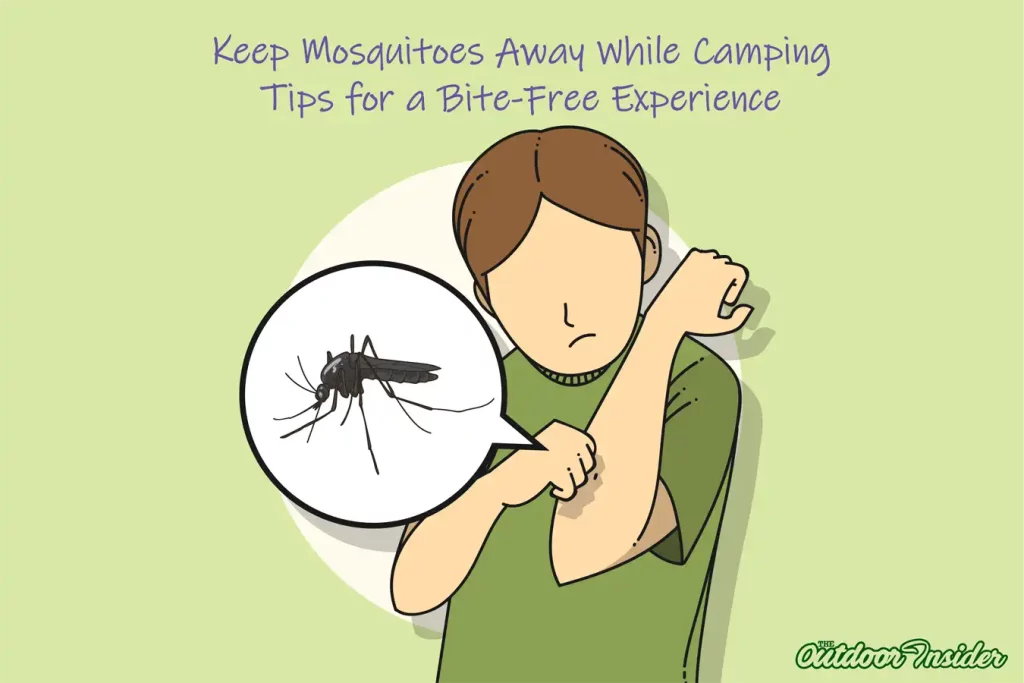Planning a camping trip and wondering how to keep mosquitoes away while camping?
You've come to the right place.
I'm Ovi Tanchangya, an ardent camper with countless experiences under the stars, and in this article, I will be sharing my tested and proven tips for a bite-free camping experience.
Excited yet?
These practical steps, gathered from my vast outdoor adventures, are sure to turn your next camping trip into a mosquito-free haven.
So, get ready to delve into nature without the buzzing nuisances, and let's make your next camping trip the best one yet!
Understanding Mosquitoes and their Attraction
Before we dive into the tips and tricks, it's crucial to understand what we're dealing with. Mosquitoes aren't just annoying, they are masterful hunters, and their favorite prey, unfortunately, is us. For better understanding please check given below picture about anatomy of a Mosquito.
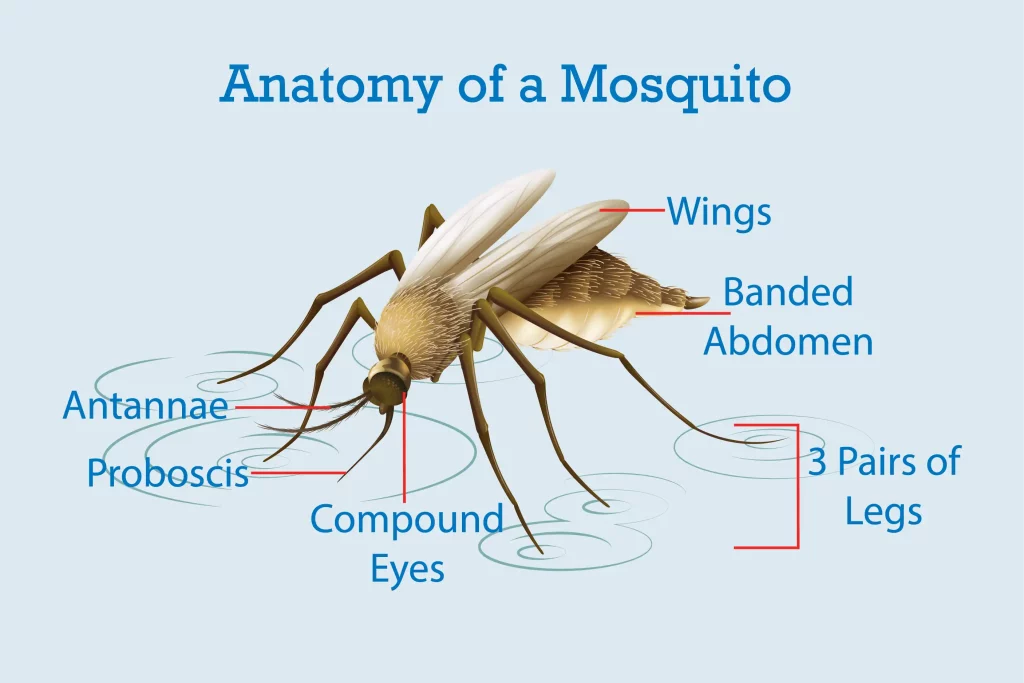
What Attracts Mosquitoes?
Mosquitoes, like any good hunter, are attracted by their prey's tell-tale signs. Carbon dioxide from our breath, the lactic acid on our skin, body heat, and even the color of our clothing can act as a beacon, guiding mosquitoes right to us.
When camping, these signals can be even more pronounced. The warmth of the campfire, the scent of food, and the congregation of people can create a veritable feast for these winged invaders. Knowing these attraction points can help us devise our defensive strategies.
How Mosquitoes Can Impact your Camping Trip
We've all been there – you're enjoying a tranquil evening by the lake, the fire's crackling, the s'mores are perfectly toasted, and suddenly…buzz…buzz…you're swatting left and right, your peaceful evening turned into a battlefield. That's the power of mosquitoes.
Not only can mosquitoes cause irritating bites and spoil the fun, but they can also pose serious health risks by transmitting diseases like malaria, dengue, and zika virus. Keeping them at bay is not only a matter of comfort but also of health and safety. Watch about symptoms of malaria from my given below illustrate image.
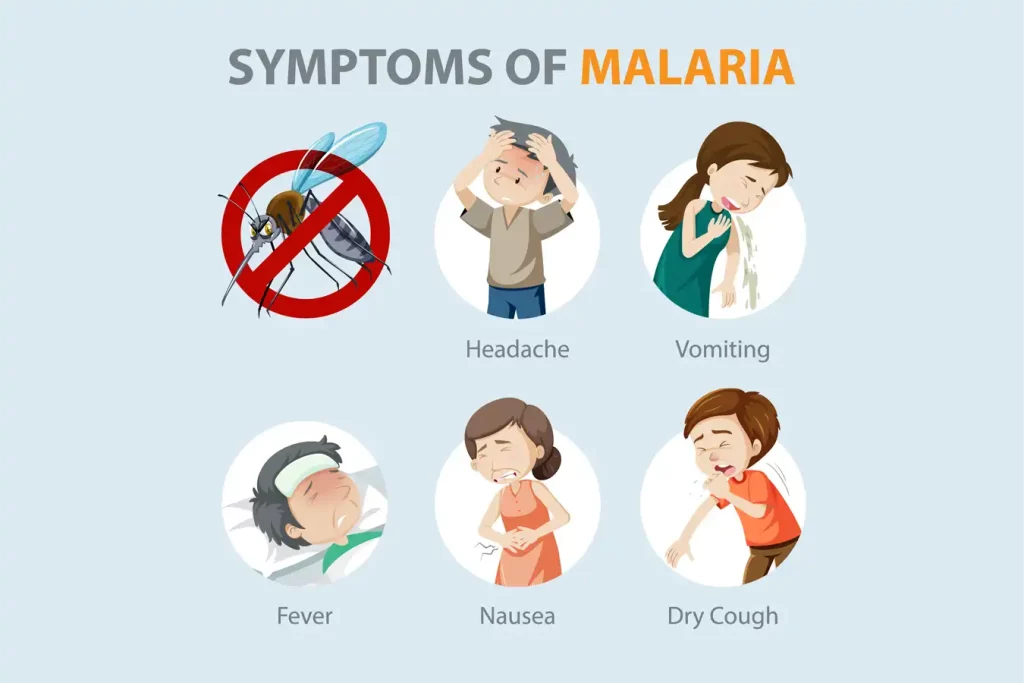
Prevention Strategies: Before Camping
An old saying goes, “An ounce of prevention is worth a pound of cure,” and it certainly rings true when it comes to dealing with mosquitoes. Proper planning and preparation before embarking on your camping trip can significantly reduce your encounters with these pests.
Choosing the Right Campsite to Avoid Mosquitoes
Mosquitoes love stagnant water – it's where they breed. So, if you set up camp near ponds, marshes, or stagnant streams, you're inviting trouble. Opt for campsites that are dry and have good air circulation. Higher altitudes or breezy locations can also be less appealing to mosquitoes. To avoid mosquitoes, try to camp at the top of the mountains.
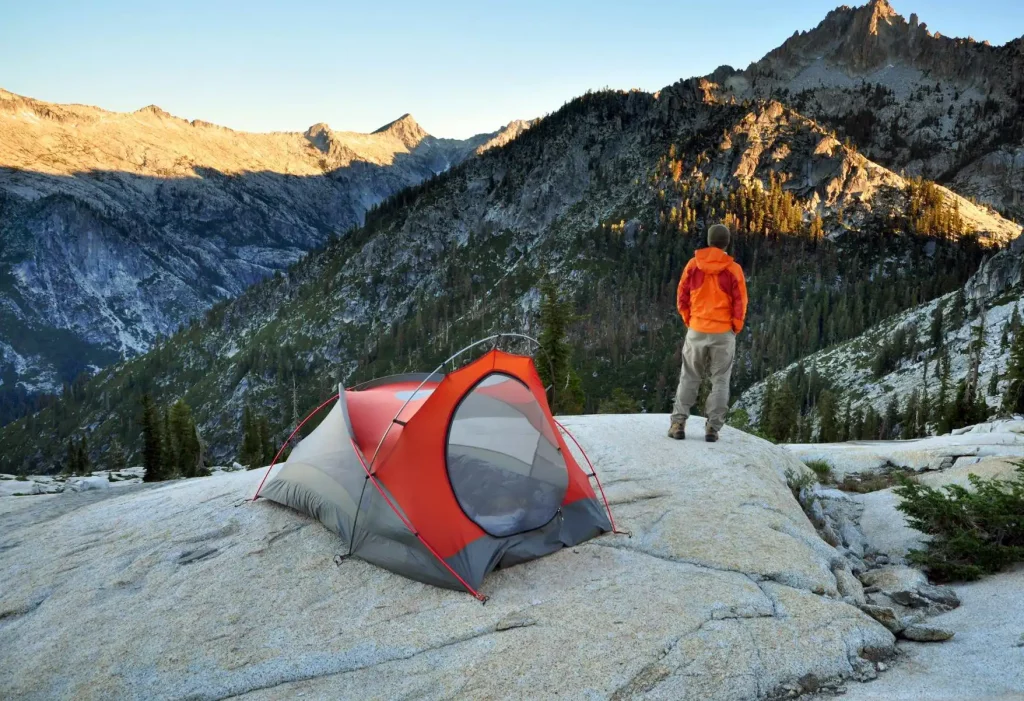
Preparing Your Camping Gear
Think of your camping gear as your first line of defense. Invest in a good-quality tent with mesh screens to provide a barrier against mosquitoes. Treating your gear with permethrin, an insect repellent, can offer added protection. Remember to pack a mosquito net for extra security while sleeping.
Natural Mosquito Repellents
Sometimes, the best solutions come from nature itself. Using natural repellents can be an effective, eco-friendly way to keep mosquitoes away without relying on chemical products.
Plants and Herbs that Repel Mosquitoes
Certain plants are known for their mosquito-repelling properties. Planting them around your campsite or bringing them along in pots can deter mosquitoes. Some of these include citronella, lemongrass, marigolds, and lavender. Also, burning sage or rosemary on your campfire can help, as mosquitoes dislike their smoke.
DIY Natural Mosquito Repellents
If you're into DIY solutions, you can create your own natural mosquito repellent. Mix essential oils known to repel mosquitoes, like citronella, lemon eucalyptus, or peppermint, with a carrier oil or alcohol, and voila – you have your homemade, natural mosquito repellent spray.
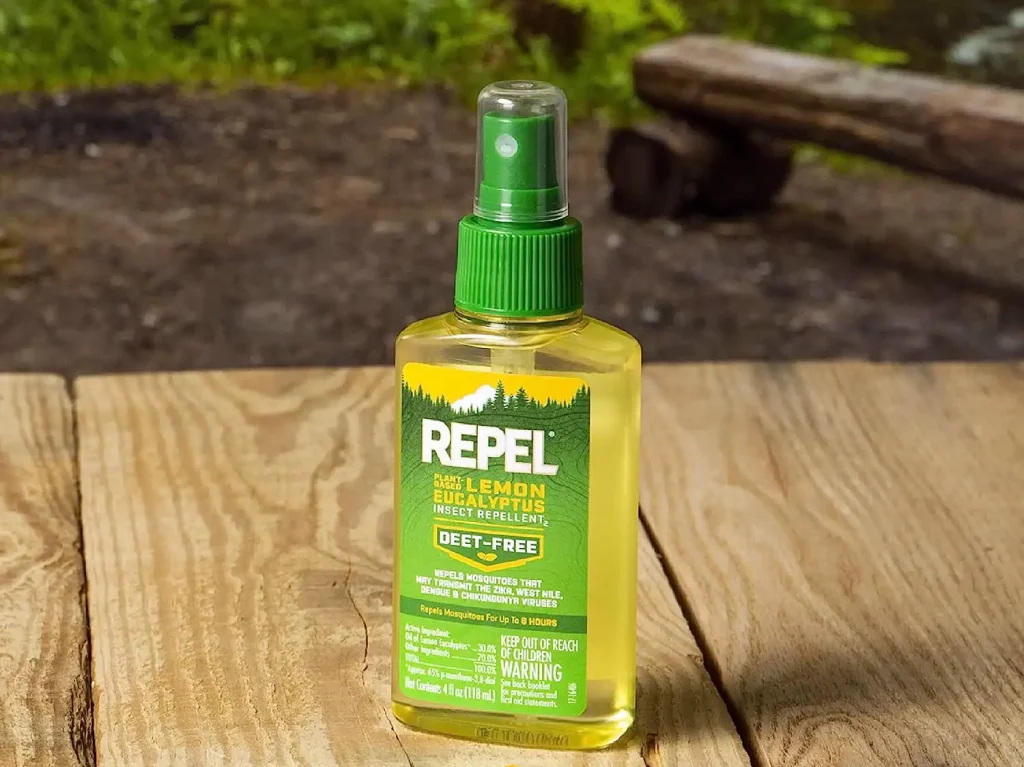
Remember, these are preventive measures and might not eliminate mosquitoes entirely. But they can significantly cut down their numbers and make your camping experience more enjoyable.
To know more: How to Avoid Ticks While Camping
Store-Bought Mosquito Repellents
Sometimes, Mother Nature's solutions need a little boost. Enter store-bought mosquito repellents. They are potent, convenient, and come in various forms to suit your specific needs. Let's explore some of these:
Understanding DEET, Picaridin, and Other Chemical Repellents
DEET and Picaridin are two of the most effective ingredients found in mosquito repellents. DEET, while very effective, can have a strong smell and may melt certain plastics. On the other hand, Picaridin is odorless, less greasy, and doesn't harm plastics or synthetic fabrics. Both are safe to use but should be applied according to the product's instructions.
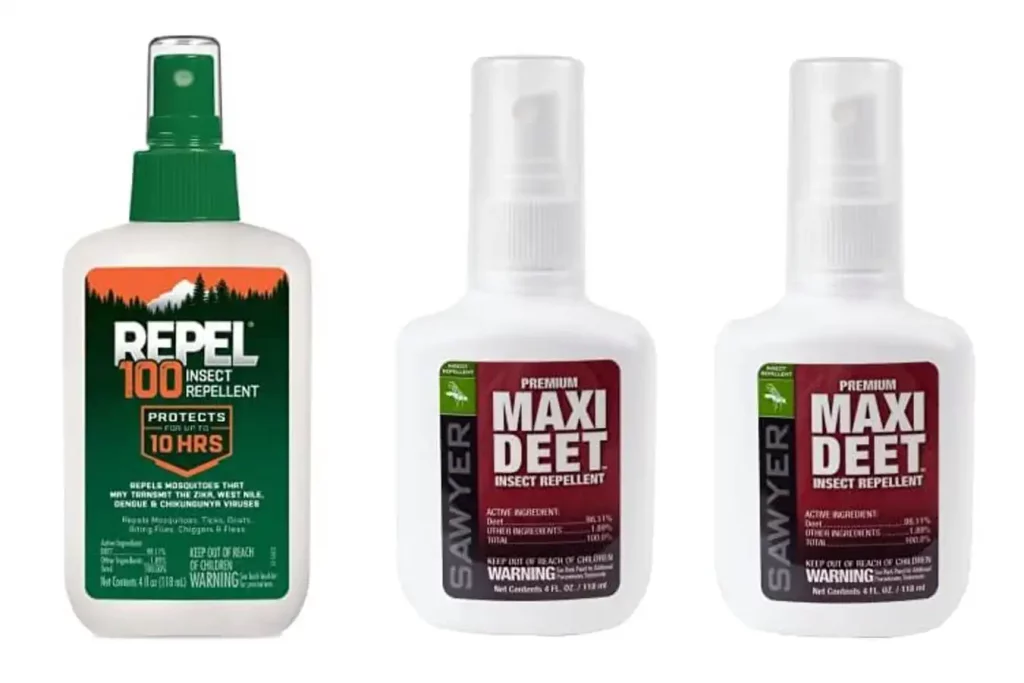
Best Mosquito Repellent Products for Campers
Sprays and lotions containing DEET or Picaridin are widely available and generally effective. Brands like OFF!, Repel, and Sawyer have high-rated products. Repel 100 Mosquito Repellents from Amazon are also an excellent choice for campers, emitting a DEET-free, scent-free radius of mosquito protection.
Protective Clothing and Gear
Dressing appropriately can be a simple yet effective way to keep those pesky bugs at bay. The right gear can make a significant difference in your level of comfort.
Best Clothing Choices to Protect against Mosquitoes
Opt for long-sleeved shirts, long pants, and socks to limit skin exposure. Light-colored clothes are less attractive to mosquitoes than dark ones. You can also consider investing in clothing pre-treated with permethrin for added protection.
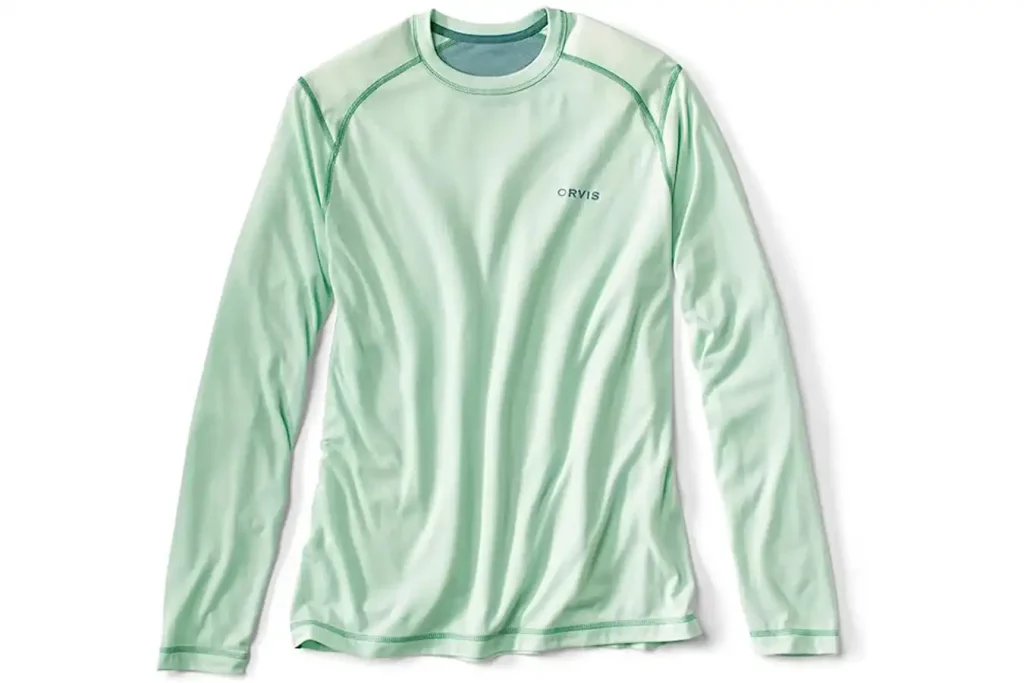
Mosquito Nets and other Protective Gear
Mosquito nets are invaluable, especially when sleeping. For added protection, wear a mosquito head net when outside the tent. Don't forget your hands and feet – consider mosquito repellent bands or bracelets.
Campsite Practices to Minimize Mosquito Presence
Your campsite routine can significantly influence the mosquito situation. It's all about creating an environment that's least attractive to these pests.
How to Setup Your Campsite
Choose a spot that's far from standing water. Keep your campsite clean and dispose of trash regularly to avoid attracting mosquitoes. Make sure your tent is sealed properly and fix any holes in the mesh screens promptly.
Campfire and Light Tips to Deter Mosquitoes
Burning sage or rosemary in your campfire can deter mosquitoes. Mosquitoes are attracted to light, so limit the use of lanterns and flashlights when not necessary.
All these measures, combined with your vigilance, can ensure a mosquito-free camping experience, letting you focus on making those precious memories with Mother Nature.
What to do if Bitten by a Mosquito
Despite all the precautions, you might still end up with a mosquito bite or two. Don't worry – most mosquito bites are harmless and the itching can be handled with some basic first aid.
First Aid Steps for Mosquito Bites
The first thing to do is resist the urge to scratch. Scratching can break the skin and introduce bacteria, leading to infections. Wash the bite area with soap and water. Then apply a cold compress to reduce swelling. Over-the-counter creams or gels that contain hydrocortisone can help reduce itching and inflammation.
When to Seek Medical Attention
Most mosquito bites are harmless, but if you notice symptoms like fever, severe headache, body aches, or rashes after a mosquito bite, it's important to seek medical attention. These could be signs of mosquito-borne diseases like malaria or dengue.
Learn more: How to Keep Mice Out of Your Grill
FAQs about Keep Mosquitoes Away While Camping
What smell do mosquitoes hate the most?
How do I keep mosquitoes from biting me?
How do you keep mosquitoes away when you live in the woods?
Do tents protect from mosquitoes?
Do campfires keep mosquitoes away?
Yes, campfires can help deter mosquitoes. The smoke generated by burning certain substances, like sage or rosemary, can be especially effective in keeping mosquitoes away.
Do mosquitoes avoid campfires?
Yes, mosquitoes are generally repelled by smoke, so maintaining a campfire can help to deter them.
Final Thoughts
Camping should be about enjoying the great outdoors, not battling mosquitoes. By choosing the right campsite, preparing your camping gear, using the appropriate repellents, wearing protective clothing, and practicing good campsite hygiene, you can significantly minimize your encounters with these pesky insects.
Remember, it's about creating an environment that's more about humans and less about mosquitoes. And even if you do get a bite, knowing how to handle it can ensure it's nothing more than a minor inconvenience.
So, go on, pack your bags, and get ready for your next camping adventure! Just remember to include your mosquito-fighting arsenal. Happy camping!

